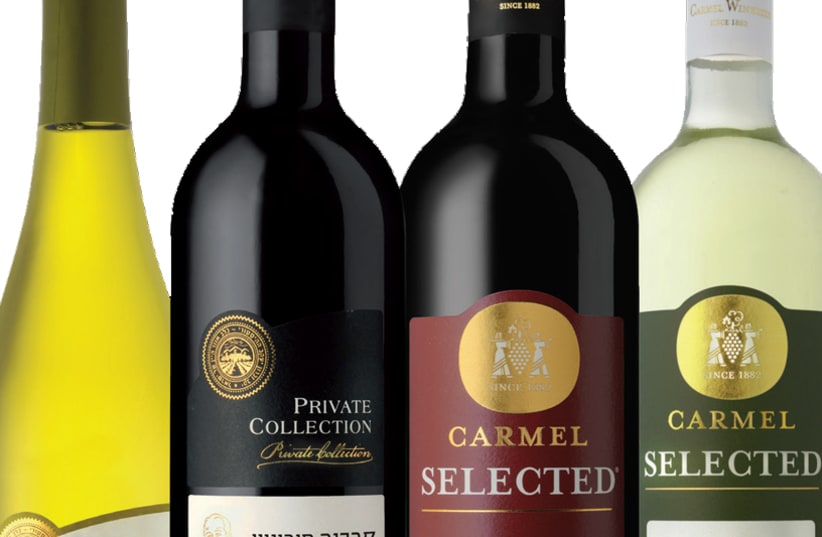As a service to our readers, I recently tried some of the new Israeli wines recently released that can give your seder an Israeli flavor wherever you are.
The Segal Winery has introduced two new “Whole Cluster” wines of Syrah and Pinot Noir (110 shekels or 30 dollars). Instead of separating the grapes from the stems, the grapes are fermented with the stems. This is how wine is still made by some small producers in Burgundy and the Rhone Valley.
I am a big fan of syrah (also known as shiraz), a peppery, spicy grape that is suited for the Israeli climate and for Mediterranean dishes. This syrah comes from the Judean Hills, and the wine is aged for 15 months in oak barrels.
Segal also offer a Wild Ferment Chardonnay and Cabernet Sauvignon, (65 shekels) in which only natural yeast is used. Segal’s idea is to leave these wines alone as much as possible and let nature do its thing. Give these a little time to open up in the glass as they change as you drink them.
If you prefer white wine for at least some of the cups, I am a big fan of Gvaot Winery’s Chardonnay-Cabernet (135 shekels). As far as I know, it is the only Chardonnay that has a significant amount of cabernet sauvignon (17%) added. The cabernet does not affect the color of the wine, but the flavor is deeper than a regular chardonnay. If you want to take a break from reading the haggadah, cover the bottle, and ask your guests to guess what is in the wine besides chardonnay. Winner gets an extra glass.
Another relatively new winery is the Jezreel Valley winery, a boutique winery at Kibbutz Hannaton in the Galilee. (Full disclosure: one of the owners, Jacob Ner-David, is a friend). This boutique winery specializes in unique blends using grapes that are not often seen in Israeli wines. I recently tried the viognier, one of my favorite white wines. It is aged in oak barrels for ten months and is heavier than most whites.
I also recommend the Adumim (90 shekels), a blend of carignan, syrah and argaman. This last grape is indigenous to Israel. It was originally used mostly to color wines a darker purple, but is now being used in blends and even as a single varietals.
Another boutique Israeli winery that I am a big fan of is the Pelter Winery in the Golan Heights. While Pelter is not kosher, a few years ago they opened a kosher winery, Matar, right next door. The 2016 Petit Verdot is made from 100 percent Petit Verdot grapes that are grown in the Judean Hills and aged in oak barrels for 18 months. The wine is earthy, and deep.
It’s also important to remember that not all good wine is expensive. The Carmel Winery, one of Israel’s largest and oldest wineries, has two popularly priced series Selected and Private Collection. The Selected Series, including Sauvignon Blanc and Cabernet Sauvignon, are meant for easy drinking with food, and retail for just 30 shekels a bottle.
There is also the Private Collection series including cabernet sauvignon, shiraz, chardonnay and sauvignon blanc. Carmel sells more than a million bottles annually in this series, which sell for 40 shekels a bottle.
Whatever you drink, enjoy, and keep filling up that cup! ■
